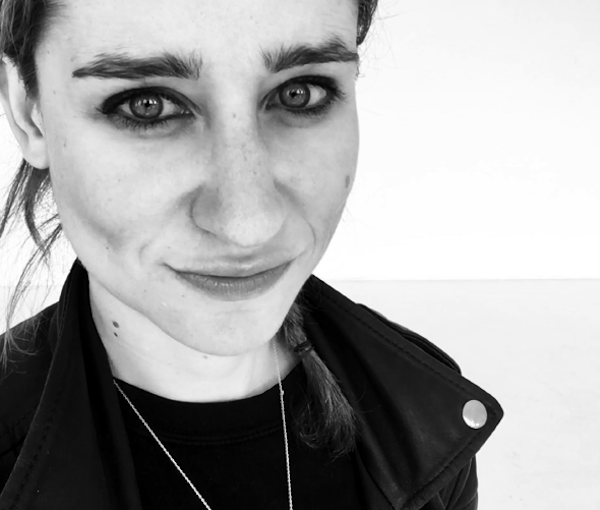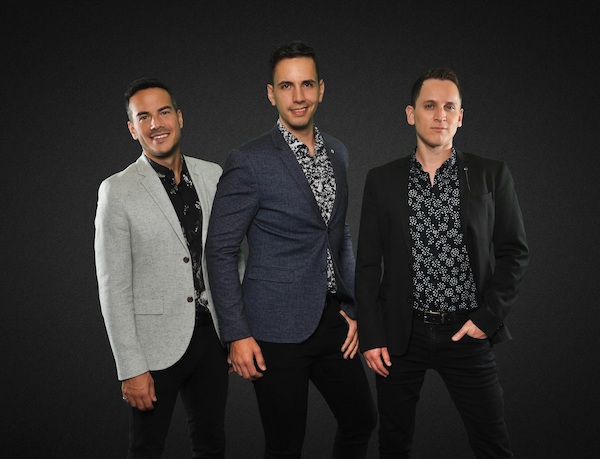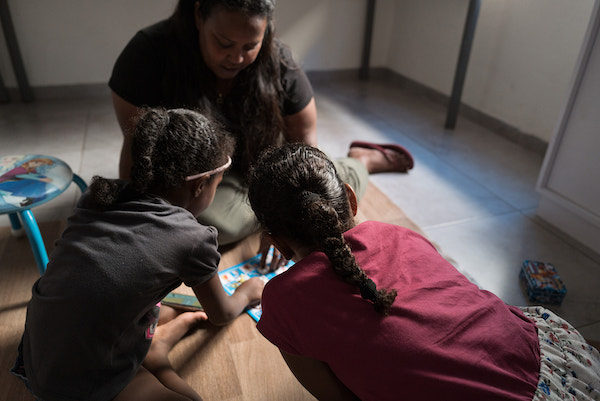Citizen West performs at the Jewish Federation of Greater Vancouver annual campaign launch Sept. 10, 7 p.m., at Congregation Schara Tzedeck. (photo from Citizen West)
The word “fun” came up more than once in the Jewish Independent’s interview with the three tenors who comprise Citizen West. The group will help launch this year’s Jewish Federation of Greater Vancouver annual campaign on Sept. 10, and the audience should expect a wide range of music, an abundance of positivity and a high-energy – and fun – performance.
Marc Devigne, Cody Karey and Omer Shaish are all accomplished musicians in their own right. Internationally renowned individually, together they have entertained audiences in more than 150 countries. With their multilingual repertoire, their message is that “we are all global citizens and, through music, we can connect with individuals of all cultures and backgrounds.”
“Music unites and connects us through harmony and a common rhythm and is spiritual in its nature,” Karey told the Independent. “I feel my most spiritually connected when experiencing a profound shared moment, and singing or performing from a stage, especially with such amazing company, really does that for me.”
Karey, who is based in Vancouver, explained how he, Toronto-based Devigne and Miami-based Shaish, came together.
“Citizen West is the product of all of us colliding at slightly different times over the last several years,” he said. “We all set out as solo artists and ended up having parallel careers. Initially, we were competitive rivals, but, as we all became connected and got to know each other, it was clear to us that we could really do something special if we combined our efforts and worked together. The three of us have been officially performing as Citizen West since 2020, but our individual connections and the idea of Citizen West go back years earlier. Our pianist, Trevor [Hoffmann], was instrumental (pun intended) in the earliest days of Citizen West as we developed our repertoire and arrangements, so this reunion performance alongside him will be a little extra special.” (Hoffmann is from Maple Ridge.)
While living in different places and following their own professional paths, Shaish said the trio see each other relatively often.
“We perform a lot as headliners on cruise ships,” he said, “so we get to sing together and travel the world together. It’s a lot of fun! The ships have brought us to some really interesting places, such as Alaska, Easter Island and even Antarctica. Those were great experiences to share with these two. We also perform on land, of course, and we come up with new repertoire all the time. We have four produced sets and, on top of that, we try to cater to our clients’ vision and needs.”
Regarding that, campaign director Gayle Morris shared with the Independent Federation’s vision of the Sept. 10 event. “This year, we wanted to try something fresh, drawing upon the incredible success and positivity of last year’s ‘Amazing Happens’ campaign,” she said. “We want our community to leave the evening inspired and excited by a creative approach to campaign opening. Citizen West are an incredible trio of tenors and a
pianist, whose extensive repertoire of music means there’s something for everyone to enjoy!”
When asked for a hint about the repertoire they will perform at the launch, Shaish said, “I don’t want to give away too many spoilers, but I can say that there’s going to be a wide variety of genres, from classical music and Broadway to pop music, rock and even a splash of Hebrew!”
For Shaish, who is from Tel Aviv originally and grew up in Israel, this show will be special.
“Living in the U.S., I often find myself shifting between my roots (Jewish/Israeli music) and my other passion toward pop music and musical theatre,” he said. “I’m truly excited about this performance, because this is the first time that these two worlds collide.”
“There’s always so much more to learn, live and experience, and I feel that it’s with this outlook that Citizen West can explore and take stylistic chances with many genres,” added Devigne, who grew up in a small French community in Manitoba. Karey grew up in Fort St. James, B.C.
“There is a fraternal sense of camaraderie and connection when we work together,” said Karey. “Our slightly different quirks and styles complement each other well and create a compelling blend. The experience of being on the road is very different when you have good people to share that with. It’s also quite fun!”
Devigne echoed this sentiment. “There’s a sense of brotherhood that comes with being in a group,” he said. “It opens up more creative opportunities as an artist and brings more colour, layers and texture to songs. It’s a nice feeling to be on stage and know you have people you can rely on to support and elevate a performance. We feed on each other’s energy on stage and it makes for a great time. We draw inspiration from each other and I truly believe it lifts us all to be better artists and performers when we perform together.”
“I think it goes with the theme of this event,” said Shaish, referring to the Federation campaign launch. “We all discovered the ‘power of community’ or the ‘power of together.’ There’s something very special and powerful in sharing the stage. When the three of us blend with harmonies and our unique chemistry, it feels like true magic.”
The campaign’s opening event – “Celebrate the Power of Community” – takes place Sept. 10, 7 p.m., at Schara Tzedeck Synagogue. It also features Eric Fingerhut, president and chief executive officer of the Jewish Federations of North America, as keynote speaker; Barak Loozon, strategic advisor to the office of Israeli President Isaac Herzog, speaking about Herzog’s dialogue initiatives; and campaign chair Shay Keil, a senior wealth advisor at ScotiaMcLeod and supporter of many Jewish community organizations and initiatives, sharing his story about how Federation campaign donors helped inspire his Jewish journey. For tickets ($18), visit jewishvancouver.com.








